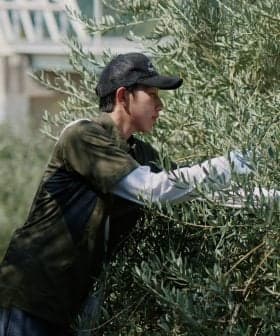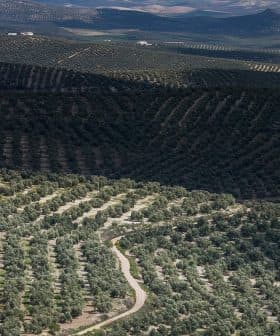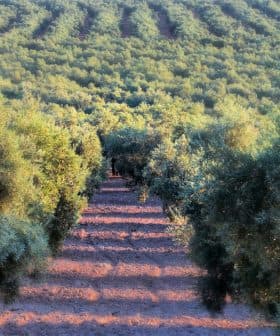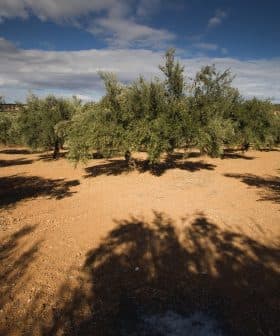From Andalusia to Madrid, Spain Shocked at Wave of Olive Thefts
The soaring price of olives and olive oil has led to an epidemic of fruit thefts and damage to groves across Spain.
 6.9K reads
6.9K readsOlive thefts in Spain are increasing due to record-high olive oil prices, with one grower estimating a loss of 25 tons of olives in Madrid alone this season. The Guardia Civil’s Countryside Theft task force is making arrests in Granada and Jaén, seizing 7.3 tons of olives in Extremadura, and advising farmers and buyers to be vigilant and ensure the provenance of olives.
From Granada to Madrid, widespread and well-organized olive thefts are occurring on an unprecedented scale across Spain as the price of olive oil continues to break records.
An olive grower from Brea del Tajo, in the autonomous community of Madrid, estimates that he has lost 25 tons of olives to theft so far this season.
These are just the tip of the iceberg, though, because not all those affected are filing complaints.
Meanwhile, in a single operation in Jaén, the world’s most productive olive-growing region by a wide margin, the authorities seized more than five tons from suspected thieves.
The impact of the crime wave has been so severe that the Spanish Association of Young Farmers and Ranchers (Asaja) has issued a statement confirming that it is coordinating with the security services and the national Directorate General of Agriculture, Livestock and Food to counter the threat.
See Also:Rising Prices Contribute to Spike in Olive Thefts in JaénDespite this, some association members feel that the judicial system is ineffectual.
“We do not yet have concrete data, but we do receive the concerns of farmers who are experiencing this situation, and we know that complaints are being filed,” said Francisco José García, president of Asaja Madrid. “These are just the tip of the iceberg, though, because not all those affected are filing complaints.”
“We are aware of cases in which the authorities have been notified, and the perpetrators have been caught red-handed, but the olives are seized, and [then the perpetrators] leave,” he added. “Farmers feel unprotected.”
In addition to the loss of their crops, such thefts cause growers long-term losses in the form of damage sustained by the targeted trees.
Fídel del Olmo, an olive grower from the Madrid region, told Asaja that “they go to steal, not to collect; they do it without regard, where there are more olives and where they can load quickly.”
“Beyond this year… there is the future damage,” he added. “The olive tree suffers a lot from the blows that they deliver to remove the fruit, they carry it out without regard or care, and the tree feels that during the next season.”
Roca, the Countryside Theft task force of Spain’s Guardia Civil (Civil Guard, a branch of the armed forces that acts in a policing capacity), appears to be having some success in Andalusia, the world’s largest olive-growing region.
Olive fruit theft
In some cases, thieves enter a grove without permission and harvest the fruit without the owner’s knowledge or consent. Olive fruit is also stolen from trucks or storage facilities during transport from the grove to the market. To protect their crops, some farmers have started using security measures such as cameras, alarms and guard dogs.
In Granada, agents have apprehended 11 suspects since January 24 on charges including robbery with violence.
In Jaén, members of the task force uncovered a sophisticated operation during a routine check specifically intended to safeguard unharvested olives in the area. A request for paperwork from a group of individuals parked among olive groves revealed an organized network suspected of multiple thefts totaling more than five tons of olives, falsifying commercial documents and impersonation.
The Guardia Civil has issued advisories recommending that farmers and the public exercise particular vigilance and report any suspicious behavior.
They also increasingly focus on commercial transportation and purchase points like olive mills. This increased attention led to the seizure of 7.3 tons of undocumented olives at a collection point in Miajadas, Extremadura, last month.
García also believes that buyers are responsible for ensuring the provenance of the olives they purchase.
“We would like to ask olive buyers to take this problem into consideration and try to trace the origin of the fruit to prevent the stolen product from entering the channels,” he said, “Likewise, we would also ask farmers who give permission to third parties to collect their olives to do so in writing so that this consent exists in some form.”
Share this article










